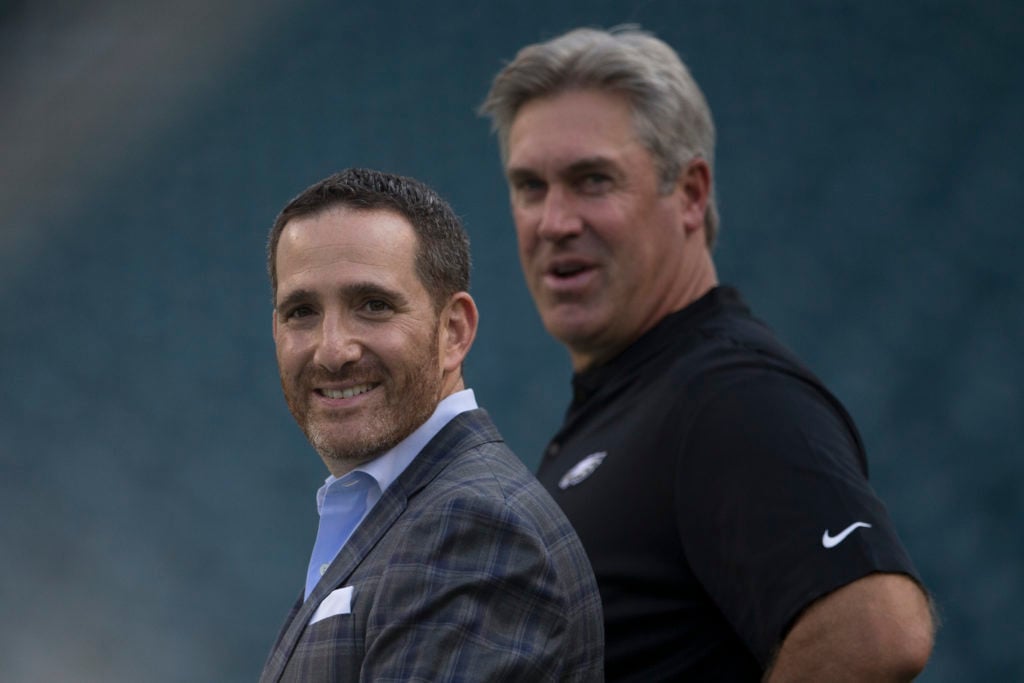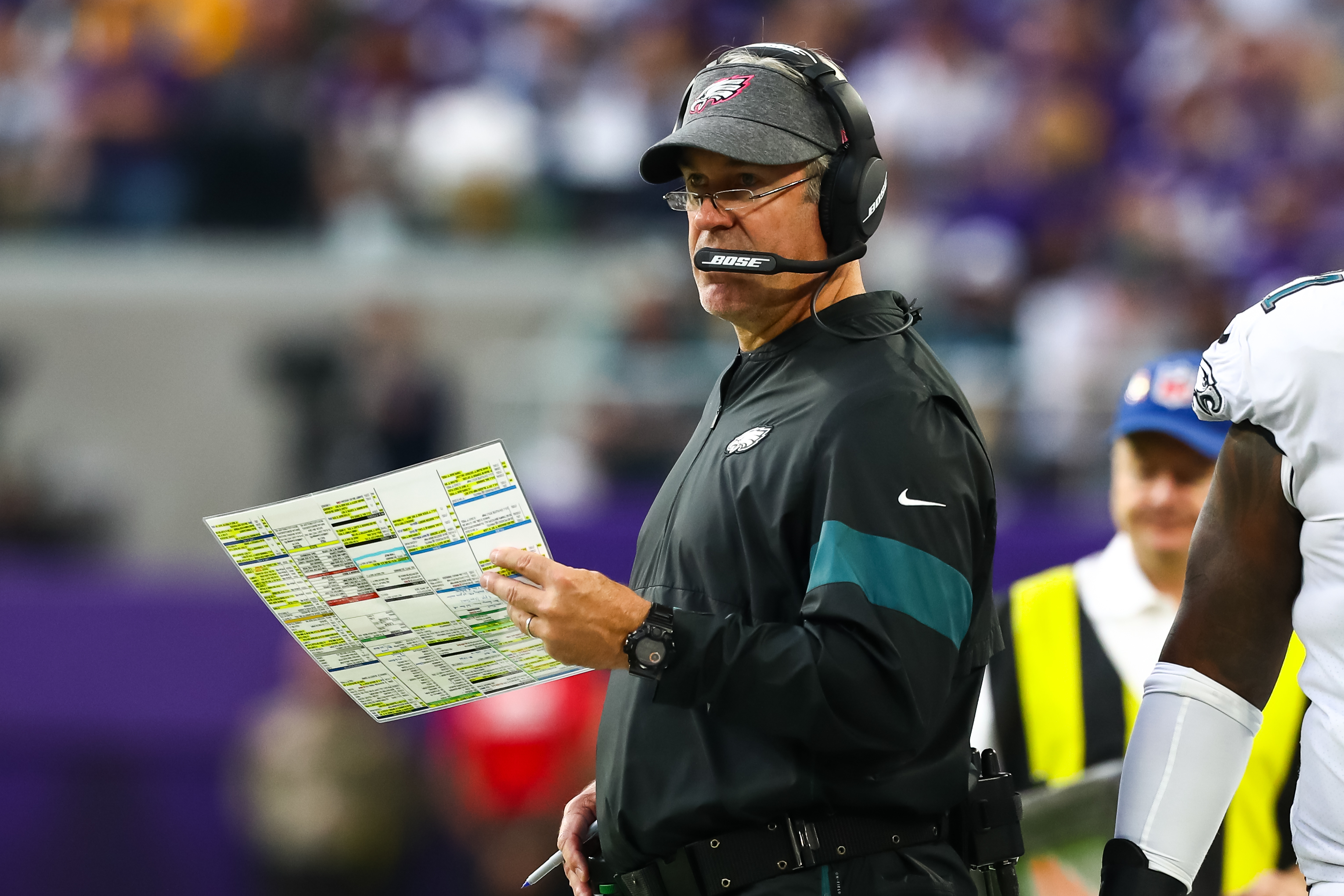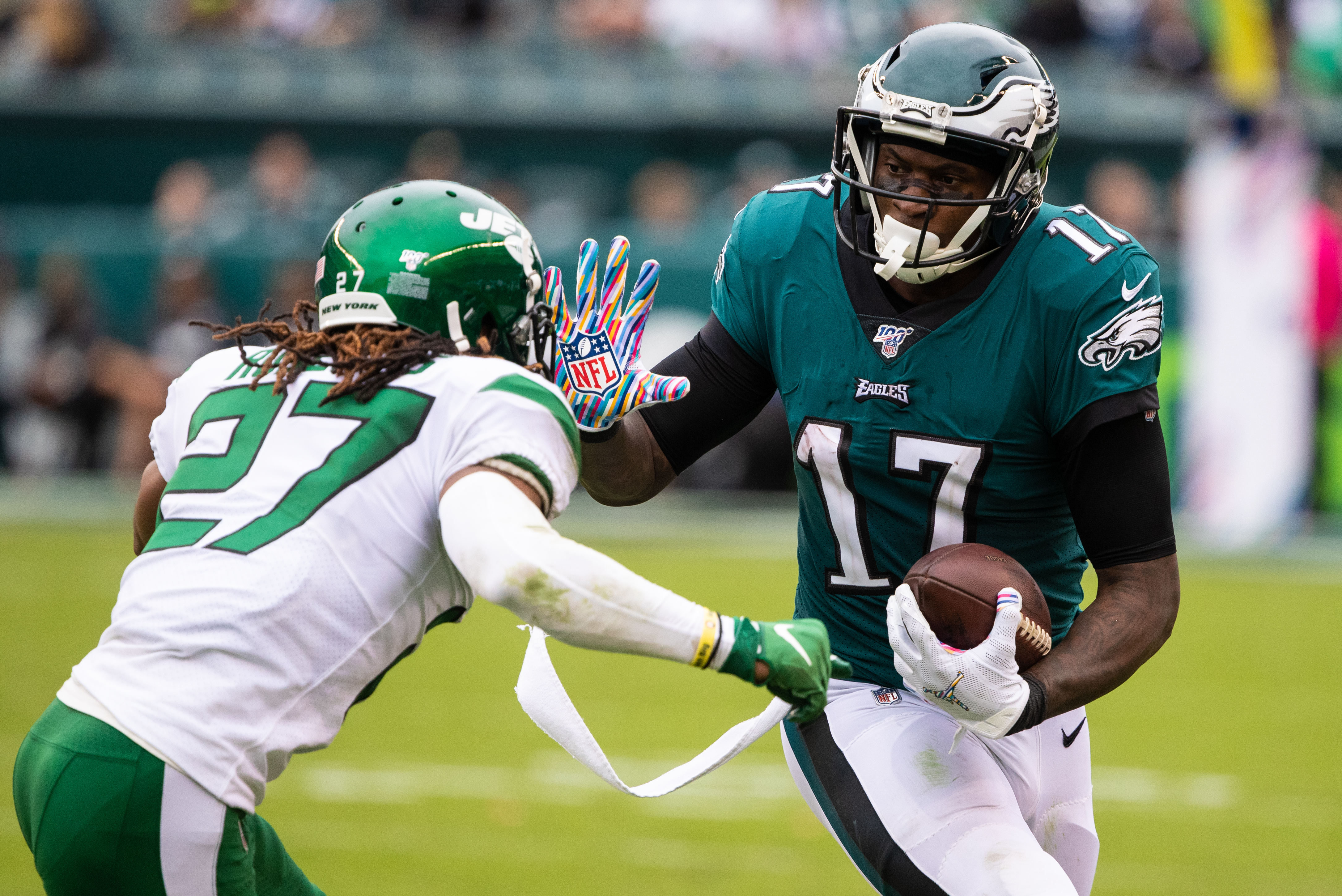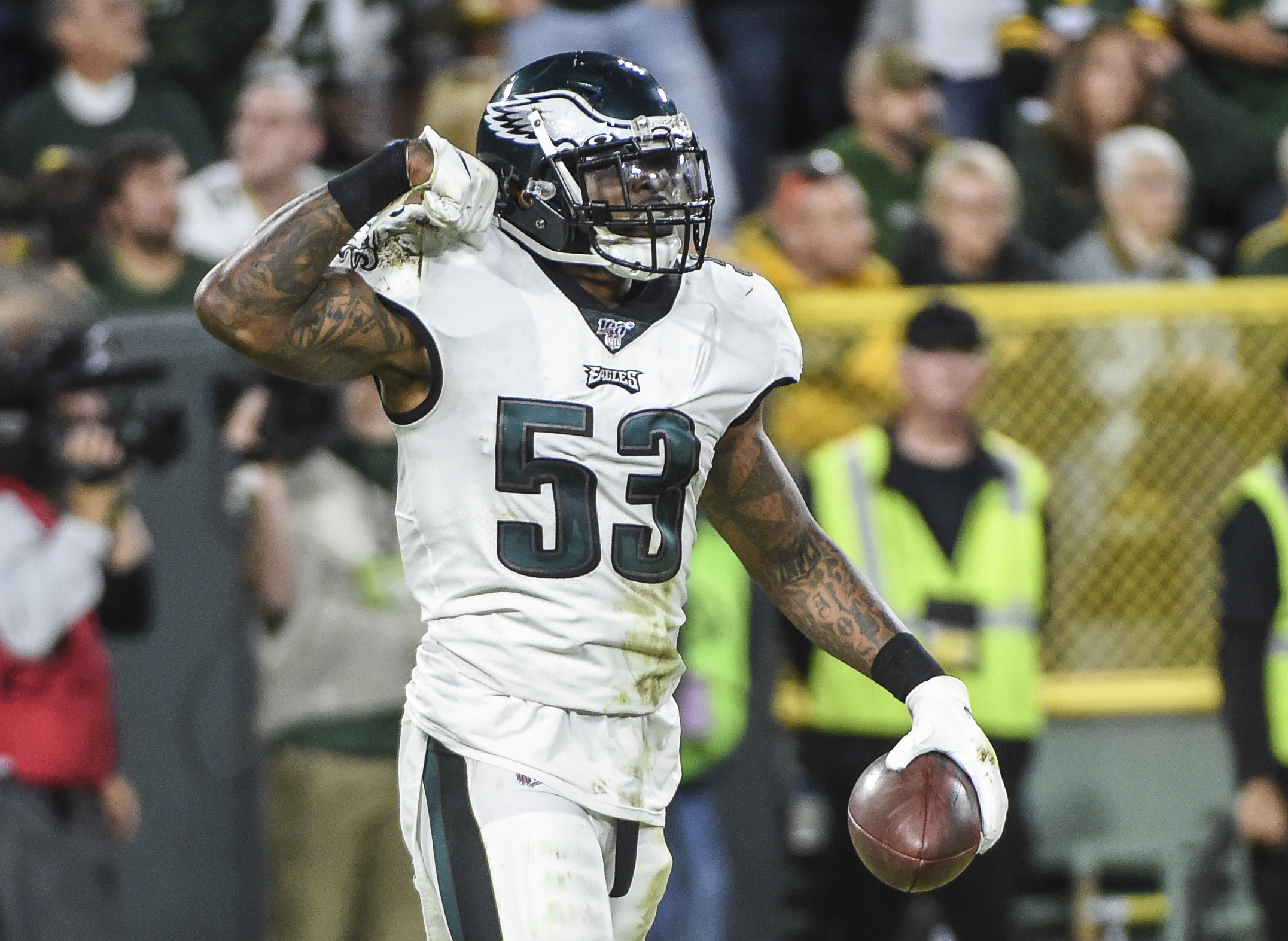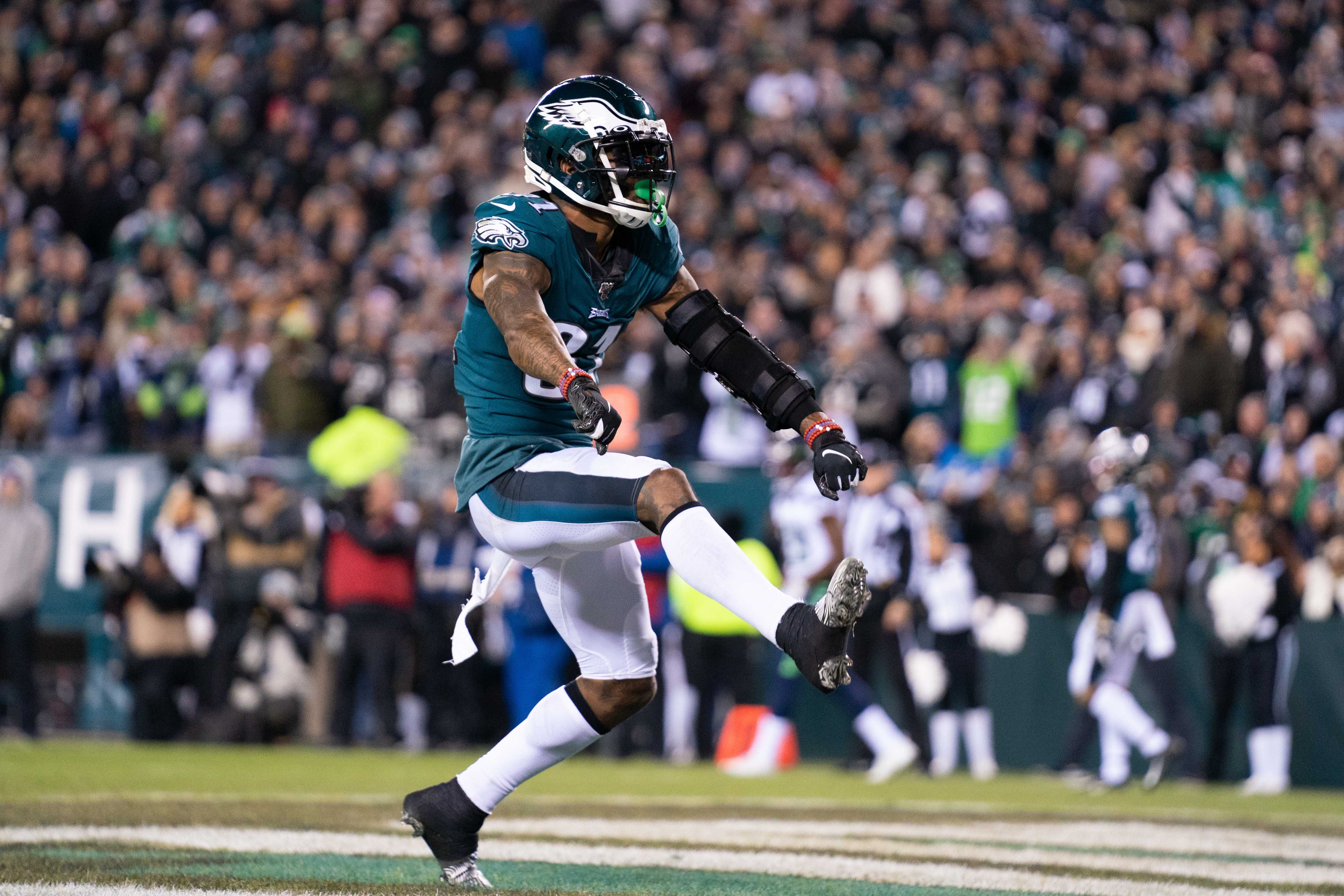By Sheil Kapadia 1h ago
10
Earlier this month during his
end of season address, Eagles general manager Howie Roseman said all the right things about needing to “infuse youth” into the roster and build through the draft. His big-picture message seemed pretty clear: Change is coming this offseason.
But how much change? Because of decisions made over the past couple of seasons, the Eagles don’t have a lot of flexibility.
“In the last couple of years, to deal with the salary cap, what we’ve seen them do is go in and do a large number of contract restructures where they’re adding voidable contract years just to pro-rate money way into the future,” said salary cap expert Jason Fitzgerald,
who runs OverTheCap.com. “We’ve seen them do some early extensions with players to do that kind of stuff.
“So when I talk about flexibility, I think they’ve kind of maxed out on their flexibility. Or they’ve come close to it. … Most of their veteran players, they’ve gone in there and reworked those deals to maximize cap space in the short term, and you hope it doesn’t catch up with you in the long term.”
To free up short-term cap space, the Eagles have reworked veteran contracts. If a team is confident those veterans are going to be around for the duration of the contract, such moves are not a problem. It’s essentially an accounting tool that allows the cap hit to be spread over a longer period. The issue arises when the team wants to get out of one of those veteran deals early.
“It can hurt you long term if those players don’t pan out or they get to the point where they’re just older and they’re not gonna contribute the same way that they used to,” Fitzgerald said.
“You can end up where you’re just gonna take a bunch of dead money probably at some point in time or you’re just gonna have a roster with a bunch of old guys that can’t compete.”
The latter applies to the 2019 Eagles to an extent. Many of the issues associated with an older roster — most notably injuries and players declining — crept up in the past season.
So how do the Eagles reverse those trends going forward? They need to build through the draft, and they need to say goodbye to some of their older players.
Below is a 10-step plan for how I think the Eagles should approach this offseason (with help from Fitzgerald). This isn’t a deep dive on specific free agents or draft prospects. We’ll cover those in future posts. These are more big-picture ideas and proposed solutions to the team’s biggest roster problems.
1. Prioritize speed and athleticism on offense
This is an obvious one. From Week 2 on (also known as the post-DeSean Jackson era), the Eagles were the only team in the NFL without a pass play of 50-plus yards. They had one touchdown of 40-plus yards during that stretch. Only the Bears and Patriots had zero. As a point of reference, the Chiefs had 11.
This is about focusing a plan around what Carson Wentz does best. He wants to be an aggressive downfield passer, not a methodical, move-the-chains quarterback who relies on efficiency. He likes to throw to players who can separate rather than trust guys to make contested catches. The Eagles need to surround Wentz with speedy wide receivers and build on his natural instinct to be aggressive.
There’s nothing wrong with an 11-play, 85-yard possession. But you know what’s more fun and a nice option to have? The quarterback dancing around in the pocket or looking off a safety and chucking it 50 yards to cap off a three-play, 85-yard touchdown drive.
(David Berding / USA Today)
2. Chill with the 12 personnel offense
Last offseason, Doug Pederson talked about wanting to play a lot of 12 personnel (one RB, two TEs, two WRs), and the Eagles did that in 2019. But the results were unremarkable. Among the 47 league-wide personnel groupings with at least 200 plays, the Eagles’ 12 personnel ranked 31st in yards per play (5.39). They were 32nd in passing (5.9) and 25th in rushing (4.6).
I’m not saying the Eagles need to abandon 12 personnel altogether. There will be certain games in which it makes sense to have Zach Ertz and Dallas Goedert on the field together a bunch. And 12 personnel will probably work better with speed on the outside. But
the Eagles were the lone offense that used 12 personnel more than 50 percent of the time last season, and I don’t think that plays to Wentz’s strengths. The goal should be to build around three athletic wide receivers, threaten teams vertically and horizontally, and play more 11 personnel (one RB, one TE, three WRs).
3. Find an ‘idea guy’ to add to the offensive coaching staff
I’m not trying to speak in vague, business leadership-type jargon here. I just mean Pederson could use someone who complements his area of expertise, which is the West Coast offense. Maybe it’s someone with a background in spread concepts from the college ranks. Or perhaps it’s someone who is really smart about finding ways to get the ball downfield. Just somebody who can help Pederson come up with answers throughout the course of a season.
Much has been made about how the Super Bowl staff worked well together with situational football: third down, red zone, etc. And it’s true — that was a great staff. But the Eagles were actually pretty good situationally last year.
They averaged 5.56 points per red-zone trip, which ranked first. And
they were seventh in DVOA on third down. The one area where the Eagles could use help is with scripting the first 15 plays. They ranked 20th in Expected Points Added (EPA) on their first possessions, per TruMedia.
I’m not saying the “idea guy” has to necessarily be the new offensive coordinator. Maybe he’s the wide receivers coach or a senior offensive advisor. But I’d like to see the Eagles add a new voice to complement what Pederson and the existing staff do well.
4. Bid farewell to Jason Peters
It’s time. He’s had a Hall of Fame-worthy career, and getting 13 games out of Peters in 2019 was a win. But his play slipped, and the Eagles traded up to draft Andre Dillard in the first round last April. Dillard looked competent in his three starts at left tackle (he looked uncomfortable and got benched when he played right tackle).
Tell Peters that when his career is over, he can come back and work for the organization in some capacity. But if the 38-year-old wants to keep playing, he should pursue other options in free agency.
(Bill Streicher / USA Today)
5. Keep Alshon Jeffery as insurance — for now
This one will likely be unpopular, so let me explain. The Eagles made a mistake in guaranteeing Jeffery’s 2020 salary for short-term cap space. They now get no cap relief by cutting Jeffery, and no one is going to trade for him.
“I don’t think there’s much of a way to move on from him at all,” Fitzgerald said. “I think it’s a situation where they’re pretty much stuck. There’s no positive salary cap aspect to dumping him that I can really see. He’s just got too much money in there from signing bonuses and everything else. So I think your other option is you just ride it out and you keep your fingers crossed that you get something out of him, and then you start looking at moving on in the future.”
Jeffery underwent foot surgery for a Lisfranc injury last month. The Eagles probably won’t have a clear timetable of when he can return until the summer. He may have to start the season on the PUP list.
So what’s the point of keeping Jeffery? Well, they’re not exactly stacked at the position. They have 33-year-old Jackson, JJ Arcega-Whiteside and Greg Ward. I know they’re going to add talent at wide receiver, but is it possible that Jackson suffers another injury? Or Arcega-Whiteside doesn’t develop? Or the rookies struggle to get up to speed? Of course. So why not hang onto Jeffery for now, see how he looks in the summer, assess the state of the position in September and then make a decision? Again, you are paying him either way.
The only reason to cut Jeffery now is if you want him out of the building for chemistry reasons. And it’s possible that ends up being the case. But if the locker room stuff isn’t a big issue, keep Jeffery and see if he might be able to help you at some point next season.
6. Find a way to keep Malcolm Jenkins happy
Jenkins, 32, said after the season
he would not return under the current terms of his contract. So what’s a viable solution?
“They can try and do a short-term extension with him,” Fitzgerald said. “It depends on what he’s willing to play for. The safety market, you do have players that make a lot. Generally, they’re not players in their (30s). So, I mean, it depends on what he considers reasonable. Next year he’s scheduled to make close to $8 million. Could you tack a year on to the deal, throw him an extra couple of dollars this year, you don’t guarantee anything next year? Maybe that’s a possibility. Maybe that’s something he would want to go for.”
That seems like a reasonable solution to me. Give Jenkins a bump for 2020, extend him a year but maintain flexibility.
Jenkins hasn’t missed a game since joining the Eagles in 2014. He’s at his best in a strong safety role, moving forward and playing near the line of scrimmage. But he can still match up with running backs and tight ends, and he’s a great leader. The Eagles should be willing to make tough decisions with older players, but Jenkins is the exception. They should try hard to find a way to bring him back.
(Benny Sieu / USA Today)
7. Part ways with Nigel Bradham
The Eagles don’t have a lot of options to free up cap space, but one would be bidding farewell to Bradham.
“He would be the type of player that you would be able to do that with,” Fitzgerald said. “They would save about $4.5 million if they released him outright.”
Bradham turns 31 in September and is coming off of back-to-back mediocre seasons since signing an extension after Super Bowl LII. He’s a starting-caliber player, but linebacker is a position where the Eagles should try to get younger, and parting ways with Bradham is one of their only means to free up cap space.
8. Replace Rodney McLeod with Avonte Maddox at free safety
McLeod was one of the Eagles’ best defensive players in 2019, but this is an example of not taking a gamble on a guy who turns 30 in June and whose play is likely to decline in the years ahead. McLeod has been a good teammate and a productive player. But as mentioned several times, the Eagles need to get younger.
They can replace McLeod with a player who’s already on the roster: Maddox. Jim Schwartz knows roughly 400,000 times more about football than me, but in my opinion, Maddox played his best football as a rookie when he filled in for McLeod at free safety. Schwartz even compared Maddox to McLeod at the time when asked about Maddox’s relative lack of size. Maddox had an inconsistent 2019 season playing nickel and outside corner.
The Eagles can plan to go with a safety tandem of Jenkins and Maddox, while playing Cre’Von LeBlanc at nickel. If they find upgrades in the draft or through a trade or free agency, they can adjust. But I would be comfortable slotting in Maddox at free safety heading into the season.
(Bill Streicher / USA Today)
9. Use free agency to address CB, backup QB and (maybe) LB
Jalen Mills and Ronald Darby are free agents. I wouldn’t sign Darby if I were the Eagles. That relationship has run its course. As for Mills, there’s a chance he won’t have a great market. If that’s the case and the price is right, I would consider bringing him back. I realize this is probably an unpopular take, but at the very least Mills can be a starting-caliber corner. He battled injuries last year and didn’t play great. Maybe Mills opts for a one-year, prove-it deal similar to what Darby took last offseason.
Of course, a lot of this comes down to who else is available. Cornerback seems like the area where the Eagles are most likely to be aggressive in free agency. But do they have the cap space to target someone like Byron Jones?
“You can probably do it,” Fitzgerald said. “There’s always ways that you can structure deals. There’s always ways that you can maneuver and do these things. Would you kind of be putting all of your eggs in one basket? It might end up being that way. So they might find that might not be the best of things for them.”
That’s a reasonable concern. If I were the Eagles, I would probably try to sign a middle-tier free agent (for reference,
here is my top 50 free agents list) and see if I can draft and develop a cornerback or two, rather than sink big dollars into someone like Jones. Remember, the Eagles’ cornerback play was not good last year, and
the team still finished 12th in defensive efficiency. On the other hand, Roseman indicated the Eagles made a big push for Jalen Ramsey, meaning they feel like they can afford a high-priced corner.
“You’ve got a couple teams that have got a ridiculous amount of cap space, probably double what the Eagles have,” Fitzgerald said. “Are (those teams) gonna go in there, and are they just gonna throw ridiculous offers at some of these players? If that’s the case, you probably don’t want to get involved in those things. But they can probably swing one major free agent. I don’t think that’s really an issue. They have salary cap space. They’re just locked into a lot of deals. But they’re probably towards the top of the bottom-third of the league, a little below league-average in projected cap room for next year. So it’s not terrible. You can make one move like that.”
At backup quarterback, the Eagles have to decide whether to bring back Nate Sudfeld or sign a veteran like Case Keenum. And at linebacker, they should be looking for smart players who can cover. The defense
has finished ninth or better against the run in four straight seasons. Schwartz is going to commit resources to the run game in his scheme, and the Eagles have already invested in their defensive line. They don’t need to break the bank in free agency, but they do need starting-caliber players.
10. Use the draft to address WR, DT, CB, S and (maybe) LB
General managers love to brag about how they don’t draft for need — which, of course, is a lie. You don’t want to reach for inferior players just to fill certain positions, and you need to be able to adjust if the draft falls a certain way. But let’s be honest: The Eagles are going to commit early draft resources to the wide receiver position one way or another. And they should. This goes back to the first step in our plan. It’s possible they try to address wide receiver in both free agency and the draft.
As detailed above, cornerback is another obvious need. And even though they’ll get Malik Jackson back, they need defensive tackle help. They shouldn’t invest heavily in linebacker, but again, they will need starters.
Other than those areas, the Eagles can go in a number of different directions in the draft. Offensive line — specifically the interior and depth — is a need. They could add another running back, although investing significant resources in one given the emergence of Miles Sanders would be unwise. You can never have enough edge pass-rushers. And even if they restructure Jenkins’ deal, safety is a long-term need.
I realize that’s a lot of positions, and they won’t be able to address every need. But the Eagles do have 10 picks, and given the state of the roster, this is a huge draft for Roseman and the franchise.
